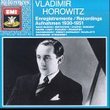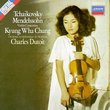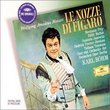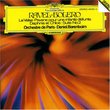| All Artists: Pyotr Il'yich Tchaikovsky, Antonio Pappano, Accademia di Santa Cecilia Orchestra, Orchestra of Accademia Nazionale di Santa Cecilia Title: Tchaikovsky: Symphonies 4, 5 & 6 Members Wishing: 0 Total Copies: 0 Label: EMI Classics Original Release Date: 1/1/2007 Re-Release Date: 3/6/2007 Genre: Classical Styles: Opera & Classical Vocal, Symphonies Number of Discs: 2 SwapaCD Credits: 2 UPC: 094635325829 |
Search - Pyotr Il'yich Tchaikovsky, Antonio Pappano, Accademia di Santa Cecilia Orchestra :: Tchaikovsky: Symphonies 4, 5 & 6
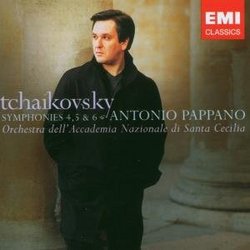 | Pyotr Il'yich Tchaikovsky, Antonio Pappano, Accademia di Santa Cecilia Orchestra Tchaikovsky: Symphonies 4, 5 & 6 Genre: Classical
|
Larger Image |
CD DetailsSimilarly Requested CDs
|
CD ReviewsBright, lively Tchaikovsky that also sings (it's from Italy Santa Fe Listener | Santa Fe, NM USA | 03/10/2007 (5 out of 5 stars) "Ever since Toscanini's day, the best Italian conductors have left their home conntry to pursue their orchestral careers. They may return to La Scala from time to time, but the absence of a first-rate Italian symphony orchestra has been a huge hindrance. Now that's changing somewhat, with high-profile conductors like Abbado, Chailly, and now Antonio Pappano (an Italian-American, admittedly) trying to build up native orchestras. To judge by this trio of Tchaikovsky symphonies, the Rome-based Santa Cecilia ensemble, always among the best in Italy, is playing to a new high standard. What is Pappano's take on Tchaikovsky's most famous symphonic works? In general I'd say these are lively, often vivacious readings, played with sparkle rather than depth. The gloomy, doomy Tchaikovsky isn't brought to the fore. Given the overwhelming virtuosity of German and American orchestras, it's refreshing to hear this music taken less arduously. There's dash and brio in the finale of the Fourth Sym., taken very fast, aided by EMI's excellent, wide-open sonics. The whole symphony, in fact, comes off well. The Fifth starts out with Pappano expressively massaging the premonitory "Fate" theme, not necessarily a good idea since we are going to hear this motto many, many more times. He tries for too much portentousness right away. But this mood changes to an outgoing exuberance that's not at all fatalistic. The famous Andante cantabile could use more intensity; it's turned into a sleepy nocturne, but no less lovely that way. The same swell-and-release mood that Pappano used for the main theme he returns to in the waltz, where it works better. The modest beginning to the finale exchanges power for expressivity, which is a relief given how bludgeoned to death this movement often is. In all, I don't find the Fifth as convincing as the Fourth, but the performance is highly enjoyable nonetheless. The test for any Tchaikovsky interpreter comes in the Pathetique, where lightness and exuberance arena't going to work so well. But Pappano is determined to keep the music light and dancing, working against this type-cast tragic symphony. He makes a big slowdown for the soaring main theme without leaning into the pathos. By the time we reach the waltz and march, it's clear that by singing the symphony, so to speak, Pappano has found a genuine way to touch the emotions. This holds good in the finale, which doesn't try to wring our hearts with sobbing but wears its grief with touching dignity. I started listening to this set hoping for a few original touches and some personal expression, but Pappano delivers much more. Competitive sets by Karajan, Jansons, Pletnev, Ashkenazy, etc. are put in the shade. I must say that I'm impressed." Warm and Dramatic Tchaikovsky WiseOak | Franklin, Tennessee | 04/14/2010 (5 out of 5 stars) "Pappano's warmly dramatic approach to these performances has left me consistently wanting to hear more. Very well recorded: I have to strongly disagree with the other reviewer who states that Pappano's breath is constantly being heard; I have not encountered this problem, not at all. The brilliant quality of the digital sound with clean separation is unsurpassed, and along with Pappano's accounts, these are by far the best versions currently available in terms of both performance and sound quality. The outstanding wind soloists of the St. Cecilia orchestra adds distinction to each symphony; the horn solo in the slow movement of the Fifth is not just refined in its delicacy, but also intensely meditative. These are the recordings that will have you marveling afresh at Tchaikovsky's mastery as a symphonist, a quality that is under-appreciated. I only wish that Pappano and the St. Cecilia would complete the cycle."
|

 Track Listings (6) - Disc #1
Track Listings (6) - Disc #1